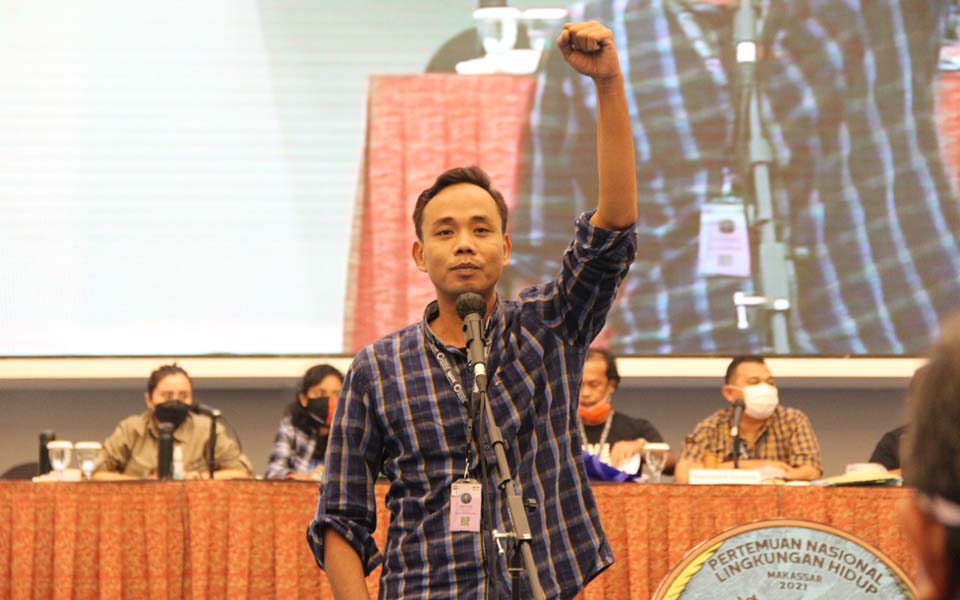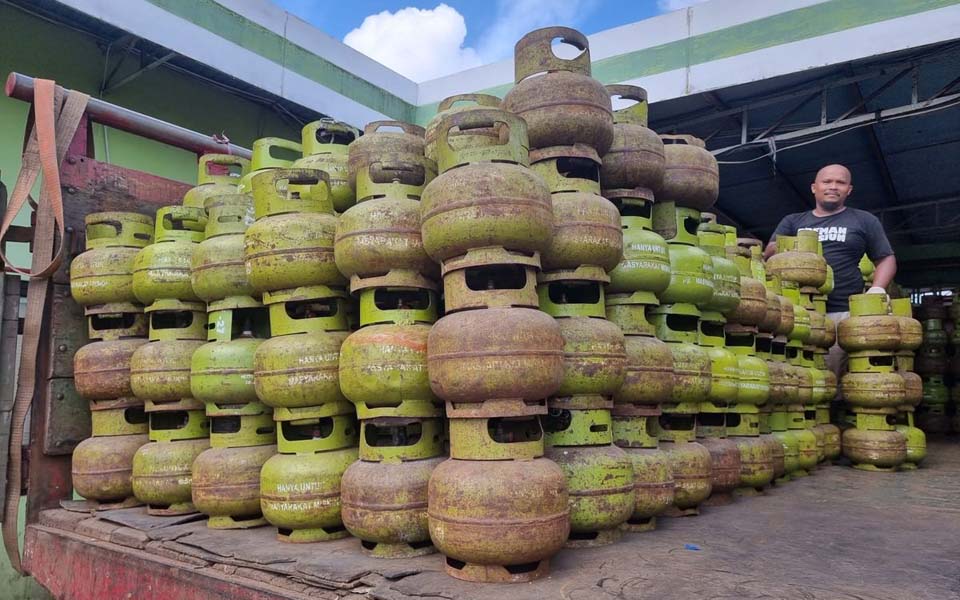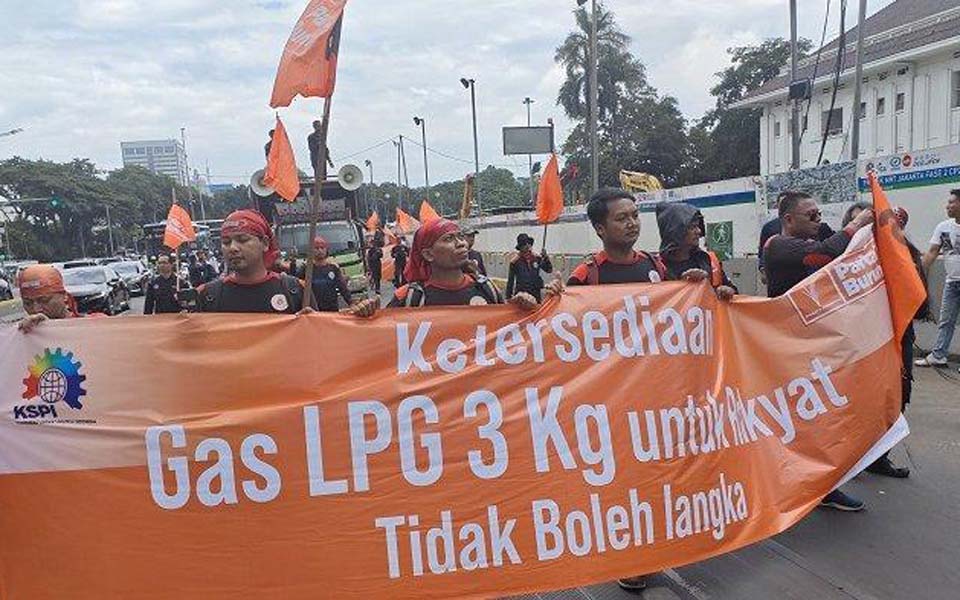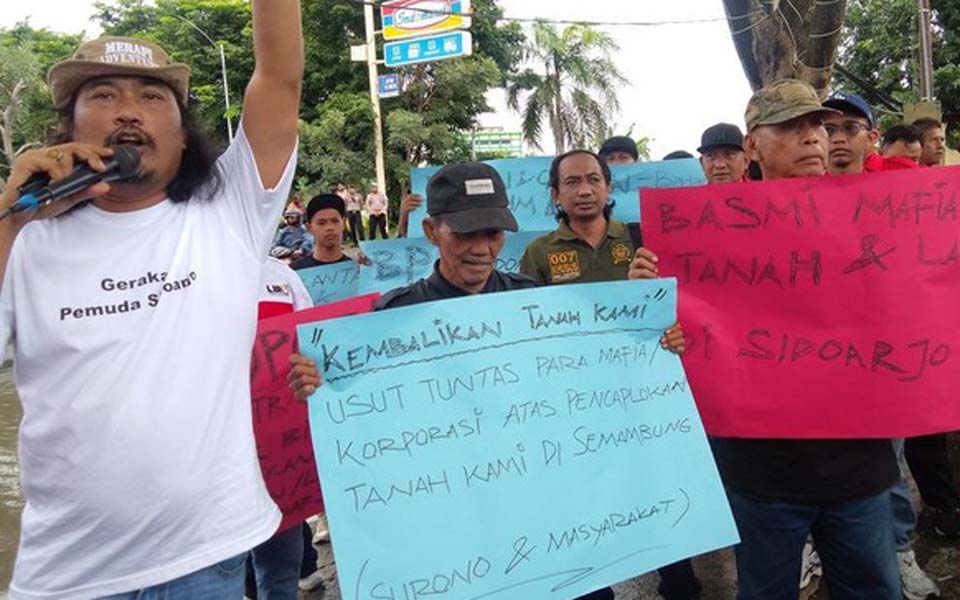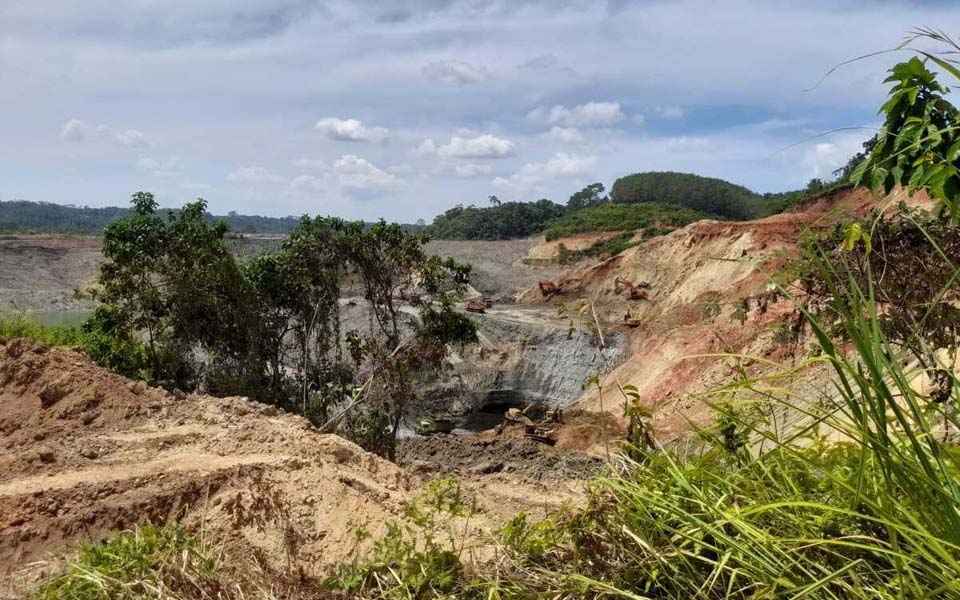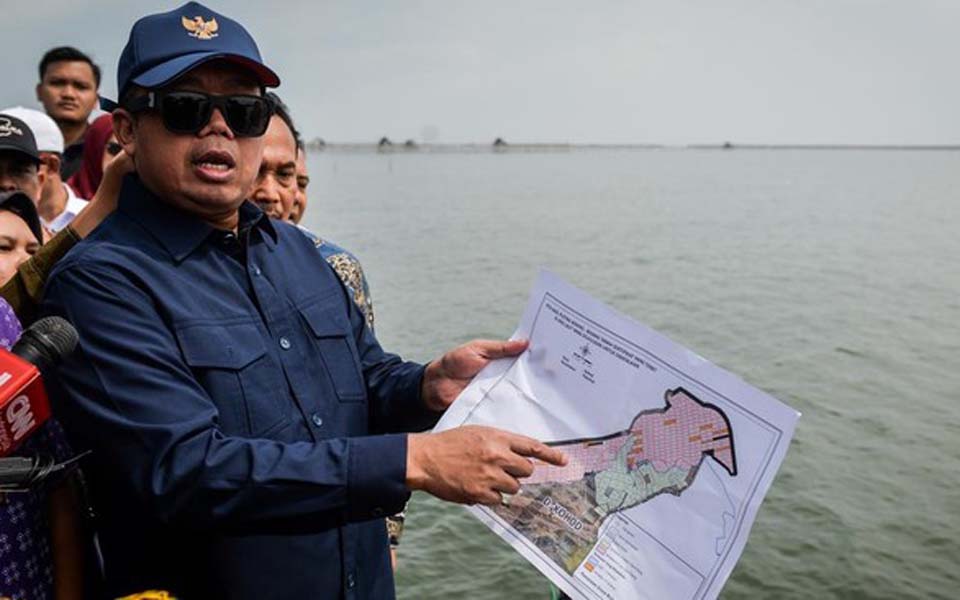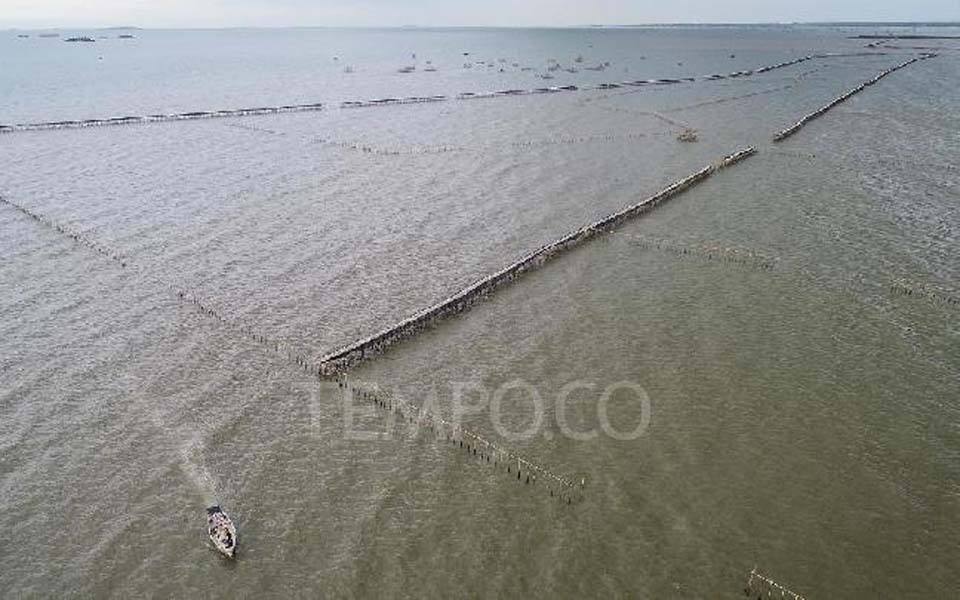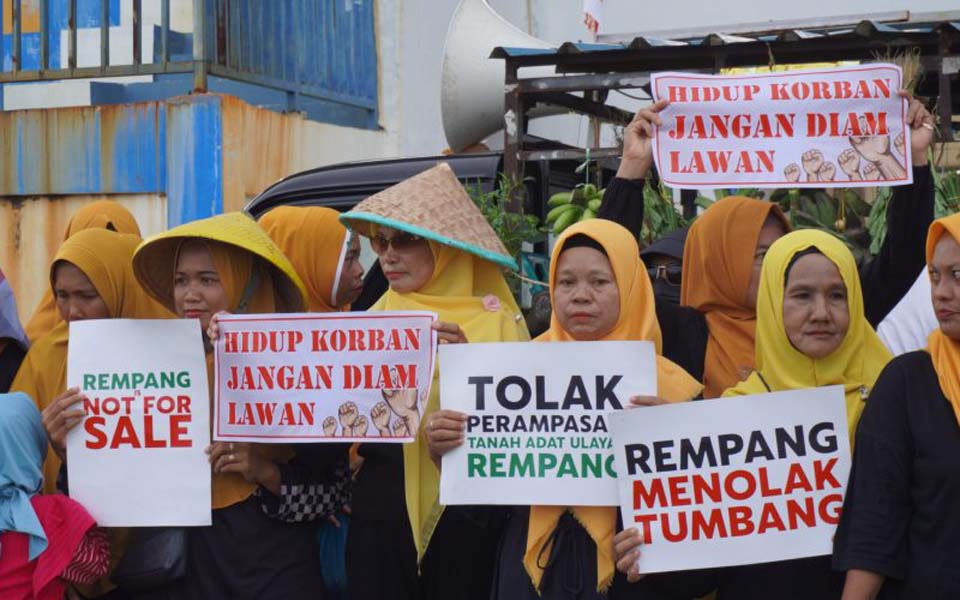Jakarta – The Mining Advocacy Network (Jatam) says that the presence of retired Indonesian military (TNI) and police generals in mining companies is ridden with conflicts of interest. It is suspected that their presence also results in favouritism in the handling of conflicts between the mining industry and local communities.
"There are a growing number of police and military actors who it turns out have a direct relationship with mining businesses and hold important positions and posts", said Jatim national legal division head Muhammad Jamil during a video press conference on Sunday January 24.
In the outline presented by Jatam, figures from the TNI include, among others, the former Minister of Religion retired General Fachrul Razi (PT Antam and PT Toba Sejahtera commissioner), the current Coordinating Minister for Maritime Affairs and Investment retired General Luhut Binsar Panjaitan (PT Toba Bara Sejahtera commissioner) and former TNI commander retired Admiral Agus Suhartono (PT Bukit Asam Tbk president commissioner).
Then there is retired Lieutenant General Agus Surya Bakti (PT Antam president commissioner), retired Lieutenant General Suaidi Marasabessy (PT Kutai Energy commissioner), retired Major General Wardiyono (PT Agtika Dwi Sejahtera president commissioner), retired Lieutenant General Sintong Panjaitan (commissioner of PT Adimitra Baratama Nusantara, Pt Kutai Energi and PT Adimitra Baratama Nusantara).
Next there is retired Rear Admiral Syamsul Bahri (PT Bintang Prima Energi Pratama commissioner) and retired Chief Air Marshal Djoko Suyanto (PT Adaro Energy commissioner).
Then from the national police there are names such as former criminal investigation bureau deputy chief retired Inspector General Mathius Salempang (PT Bukit Baiduri Energi commissioner and Pt Khotai Makmur Insan Abadi director) and former Metro Jaya police chief retired Commissioner General Nugroho Djayusman (PT Bintang Prima Energi Pratama commissioner).
Next there is retired Inspector General Aryanto Sutadi (director of PT Energi Cahaya Industritama and PT Dunia Usaha Maju) and retired Inspector General Alpiner Sinaga (director of PT Energi Jaya Industritama and PT Dunia Usaha Maju).
Jamil said that they suspect that the many figures from law enforcement institutions among the ranks of mining corporations gives rise to a conflict of interest in the handling of cases between mining corporations and local communities.
"Because retired police and military officers have a direct relationship with these extractive industries. This is what is being ignored by the Jokowi [President Joko Widodo] regime, [claiming] that this conflict of interest isn't a problem. Yet in fact it's a huge problem", he said.
CNN Indonesia has attempted to confirm the list of retired generals with TNI information centre chief Major General Achmad Riad and Indonesian police public relations head Inspector General Argo Yuwono, as well as the allegations of favouritism in the handling of conflicts in the mining industry. As of posting this report however, neither of them has responded.
Jamil said that this situation of alleged favouritism can be seen from the pattern of how conflicts between mining companies and local people are handled. According to Jatim's records over the last year, in 2020 there were at least 45 cases of mining conflicts.
As many as 22 of these were related to pollution of the environment, 13 cases were related to land theft, eight involved the criminalisation of local people opposing mines and two case involved the sacking of workers. Thirteen of these case involved military or police personnel.
In the cases involving criminalisation, Jamal said that in general corporations and law enforcement officials charged local people opposing mining activities using articles which have no relationship with the original cause of the conflict.
For example, the case of a fisherperson named Manre in Kodingareng Island in Makassar, South Sulawesi, who was indicted under Article 35 Paragraph (1) of Law Number 7/2011 on the Currency because he tore up an envelope containing money given to him by a mining corporation.
Manre, along with other fisherpeople from Kodingareng tried to hold a protest action against sand mining in Sangkarrang Makassar waters which they believed would undermine local fisherpeople's source of livelihood.
The company responded to the objections by giving them an envelope filled with money. Manre however refused it and tore up the envelope. He was later arrested by police for allegedly demeaning the rupiah.
"Even though under Law 32/2009 [on Environmental Protection and Management] people who fight for the environment cannot be charged under criminal or civil law. But then by using the article on insulting the currency it was difficult to say that Pak [Mr] Manre was fighting for the environment. Because the cases were different", said Jamil.
Kodingareng resident Siti Aisyah admitted that local fisherpeople are no longer willing to hold protests against the sand mining after demonstrators were arrested by police.
Although the case is no longer being investigated after the community was given financial compensation by the company through its corporate social responsibility (CSR) scheme, Aisyah said that they were forced to accept the money under duress from the police.
"Everyone received a summons. Then the CSR was issued, [we were] enticed, [they said] if we took the money the case wouldn't be pursued anymore. So many were forced to take it, actually we didn't want to take it because we wanted to fight", she related.
The community was fighting against the mining company because the sand mining was suspected have disrupted fishing activities. Aisyah said that since the mining coastal waves often make it dangerous to fish.
This rarely happened before. But because the mining activities have damaged the sand bars which broke up the waves, they can no longer be restored. Aisyah related how one of her friend's boats was smashed in two by a large wave.
"Now, if there's a strong wind, we go straight home. Rather than being sunk. Because the waves are very big now. Not like before, before the mining. So we want it stopped or at least shifted away", she added.
Jatam has found that the there are three other laws which are often used to criminalise local people or environmental activists who oppose mines, namely the Criminal Code (KUHP), Law Number 4/2009 on Mineral and Coal Mining (before it was revised) and Law Number 3/2020 on Mineral and Coal Mining (after it was revised). (fey/fra)
[Translated by James Balowski. The original title of the article was "Jatam Ungkap Eks Jenderal TNI-Polri di Perusahaan Tambang".]







